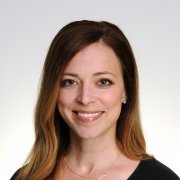A One Minute Pause on Mattering
MedEdPearls May 2021: Making educators feel, see, and know how they matter enables them to optimally participate and contribute with overall improved work productivity.
Take one minute to think about the first time you realized you mattered as an educator. What happened? How did you feel?
Whether it was an action from organizational leadership taken in your favor, an encouraging word spoken over you by a student, or an object that represented deep meaning to efforts, you experienced the power of mattering: you felt valued and knew you added value.
Mattering—the perception of our significance in the world around us—is a construct that was introduced by Rosenberg and McCullough in 1965. For educators to be happy, healthy, and productive in their place of practice, they need to feel like they matter. Does my work contribute to the learner’s goals? Do my colleagues appreciate me? Who would miss me if I were gone? Feeling significant is a basic human need and a vital factor for reducing burnout and depression. Imagine what it would be like to be collaborating on a group teaching innovation and never be given credit for your contribution. As educators, we need to see the product of our teaching efforts amongst peers, within our place of practice, and within society. As faculty development leaders, we need to be mindful about supporting our faculty within each domain. Making educators feel, see, and know how they matter enables them to optimally participate and contribute with overall improved work productivity.

Faculty development leaders can explicitly work towards increasing the sense of mattering by thinking about and demonstrating the following:
- How have you taken time to notice your educators?
- In what ways have you communicated your educators’ importance?
- How have you shown educators you rely on them?
- In what ways have you acknowledged your educators’ swift transitions from normal teaching practice to remote during COVID-19 and the challenges they have faced?
May 2-8 is National Teacher Appreciation Week, but we can celebrate our educators all month (and throughout the year). What can you do to show your educators they matter? Comment on the Harvard Macy Community Blog or share your experiences on Twitter using #MedEdPearls!
Special thanks to Dr. Karen Maradante from Medical College of Wisconsin for her contributions to this post.
About the MedEdPearls Author

Anna Lama
EdD, MA
- Assistant Professor, Medical Education; Director of Assessment for Undergraduate and Graduate Medical Education, West Virginia University School of Medicine
- Jean Bailey, PhD – Virginia Commonwealth University School of Medicine
- Carrie Bowler, EdD, MS, MLSCM (ASCP) – Mayo Clinic School of Continuous Professional Development
- Kristina Dzara, PhD, MMSc (Educators ’16; Assessment ’16; HCE 2.0 ’17) – Saint Louis University School of Medicine
- Shanu Gupta, MD, SFHM – University of South Florida Morsani College of Medicine and Tampa General Hospital
- Jennifer Hillyer, PhD – Northeast Ohio Medical University
- Larry Hurtubise, PhD, MA (HCE 2.0 '16) – The Ohio State University
- Anna Lama, EdD, MA – West Virginia University School of Medicine
- Machelle Linsenmeyer, EdD, NAOME (Assessment ’07) – West Virginia School of Osteopathic Medicine
- Skye McKennon, PharmD, BCPS, ACSM-GEI – Washington State University Elson S. Floyd College of Medicine
- Rachel Moquin, EdD, MA – Washington University School of Medicine
- Stacey Pylman, PhD – Michigan State University College of Human Medicine
- Leah Sheridan, PhD – Northeast Ohio Medical University
- Lonika Sood, MBBS, MHPE – Washington State University Elson S. Floyd College of Medicine
- Mark Terrell, EdD – Lake Erie College of Osteopathic Medicine
- Stacey Wahl, PhD – Virginia Commonwealth University School of Medicine
Harvard Macy Institute
Harvard Macy Institute
The Harvard Macy Institute educates, connects, and serves health care leaders around the globe by providing advanced faculty development programs, thought leadership, and impactful networking opportunities.
6 Programs

